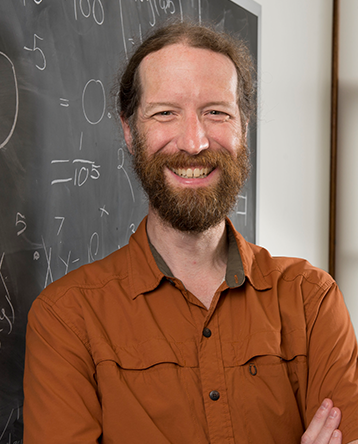Neil Donahue
Thomas Lord Professor, Chemical Engineering, Chemistry, Engineering and Public Policy
Director, Steinbrenner Institute for Environmental Education and Research
Thomas Lord Professor, Chemical Engineering, Chemistry, Engineering and Public Policy
Director, Steinbrenner Institute for Environmental Education and Research

Neil Donahue is a professor in the Departments of Chemistry, Chemical Engineering, and Engineering and Public Policy at Carnegie Mellon University. He also directs the Steinbrenner Institute for Environmental Education and Research. He seeks to understand how Earth’s atmosphere works, and how humans affect the atmosphere. One of his objectives is to help all graduating Carnegie Mellon students understand the climate problem and to apply their outstanding problem solving skills to solutions of this enormous challenge. He is a member of numerous professional societies, a Fellow of the American Geophysical Union, and an editor with several academic journals.
Donahue’s research group focuses on the behavior of organic compounds in Earth’s atmosphere. They are world experts in studying what happens to compounds from both natural sources and human activity when they are emitted into the atmosphere. Recently his research has focused on the origin and transformations of very small organic particles, which play a critical role in climate change and human health. Particles scatter light, influence clouds, and kill roughly 50,000 people each year in the US, mostly of heart attacks.
Donahue’s father taught physics at Pitt, and Donahue received a B.S. in Physics from Brown University in 1985. He received a Ph.D. in meteorology from MIT in 1991, and spent nine years as a research scientist at Harvard before returning to Pittsburgh in 2000. He lives with his wife Maren Cooke and daughters Kielan and Innes in Squirrel Hill. They have three kW of photovoltaic solar panels on their roof. Donhaue is also an avid road cyclist; you may find him on one hill or another around town.
1991 Ph.D., Meteorology and Atmospheric Chemistry, Massachusetts Institute of Technology
1984 BA, Physics, Brown University
Chemical Engineering
Keenan Norton and other students in the Environmental and Sustainability Studies program are preparing to address climate, water, and pollution challenges.
Chemical Engineering
Neil Donahue is interested in the way that organic compounds participate in making the molecular clusters that grow into atmospheric particles.
Chemical Engineering
The molecules and processes that contribute to atmospheric particle formation are underrepresented in climate models. Experiments at CERN are filling in missing information.
Associated Press
ChemE and EPP’s Neil Donahue spoke with the Associated Press about last year’s East Palestine train derailment in Ohio. He discussed how it is customary to report chemical levels that exceed chemical detectors and their reliability.
U.S. News
ChemE and EPP’s Neil Donahue was quoted by U.S. News on the benefits of HEPA air purifiers for pets. “HEPA air filters are extremely effective at removing fine particles. This includes pet dander, viruses like COVID, smoke particles from cooking, and dust of all sorts,” he says.
Carnegie Mellon University
Seven faculty from the College of Engineering received project funding from this year’s Scott Institute Seed Grants.
Wilton E. Scott Institute for Energy Innovation
ince the Scott Institute’s founding in 2012, a core initiative has been the Seed Grants for Energy Research program. With this funding, researchers across the university receive important early-stage support for developing cutting-edge energy research.
ScholarGPS
ChemE/EPP’s Neil Donahue ranked #20 in the aerosol specialty on ScholarGPS. Highly Ranked Scholars™ are identified by career productivity levels (number of publications), as well as the quality and impact of their work.
AP News
ChemE/EPP’s Neil Donahue comments on a Kentucky train derailment fire in AP News. Sulfur dioxide was thought to be released during the crash, prompting the residents of Rockcastle County to be evacuated. “It is just nasty, caustic, and acidic stuff that hurts. It’s unpleasant to be in,” Donahue says.
Royal Society of Chemistry
ChemE/EPP’s Neil Donahue was recently featured in a podcast posted by the Royal Society of Chemistry. In the “Intro to Air Pollution” episode on the show Brought to you by chemistry, he talks about air quality and how pollution can impact the body.
ABC News
ChemE/EPP’s Neil Donahue commented on a study that found Earth exceeds its “safe operating space for humanity” in six out of nine categories.
The Hill
ChemE/EPP’s Neil Donahue comments on “climate havens” with The Hill. “It’s an absurd concept with a grain of truth,” Donahue says.